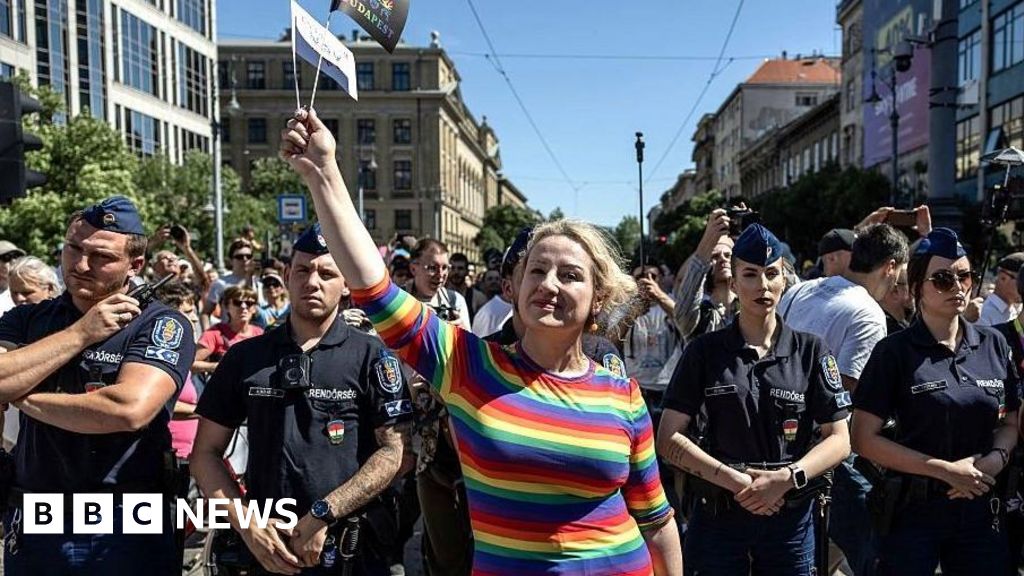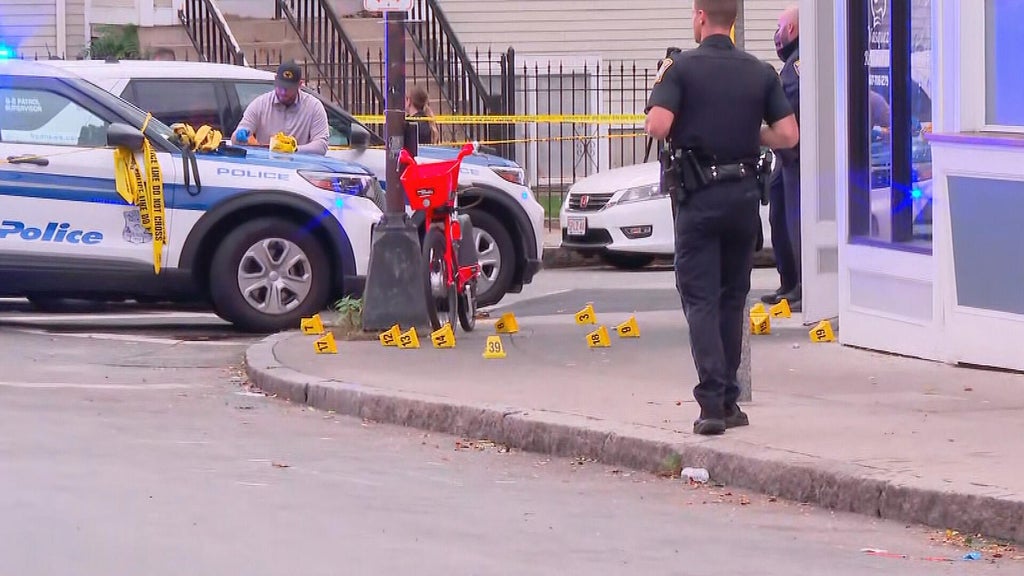Budapest Pride Draws Thousands in Defiance of Orban’s Policies

Budapest transformed into a vibrant sea of color and celebration as thousands took to the streets for the annual Budapest Pride parade. The event, which unfolded under the blazing summer sun, stretched across the iconic Elizabeth Bridge and along the banks of the Danube, drawing between 100,000 and 200,000 participants. This year’s turnout marked a significant increase from the previous year, where only 35,000 attendees were recorded. Many participants cited Prime Minister Viktor Orban’s contentious policies as a catalyst for their involvement.
The parade, typically a celebration of the LGBT community, evolved into a broader demonstration of human rights and solidarity. Attendees donned T-shirts emblazoned with a glammed-up image of Orban, complete with bright eyeshadow and lipstick, as a form of peaceful protest. Banners mocking the Prime Minister were a common sight, with messages such as “In my history class, I learnt enough, to recognise a dictatorship. You don’t need to illustrate it – Vik!” and “I’m so bored of Fascism” capturing the defiant spirit of the event.
Political Context and Legal Challenges
The march comes in the wake of a controversial law passed by Orban’s Fidesz party, which equates homosexuality with paedophilia under the guise of child protection. This law has been used to justify restrictions on the portrayal of homosexuality in spaces accessible to children. Despite this, the city of Budapest, under the leadership of Mayor Gergely Karacsony, successfully hosted the event, challenging the government’s stance.
“We don’t exactly look as though we were banned!” a jubilant Karacsony declared to the crowd, underscoring the triumph of the event. The mayor’s address, delivered in front of the Budapest Technical University, highlighted the city’s resilience in the face of governmental pressure. Karacsony, whose administration often finds itself at odds with the central government, celebrated the event as a victory for local governance and civil liberties.
International and Local Reactions
Among the international attendees was Finnish MEP Li Andersson, who criticized Orban’s use of family values as a pretext for the ban. “It’s important to emphasize that the reason why we are here is not only Pride – this is about the fundamental rights of all of us,” she stated, reinforcing the broader implications of the march.
Meanwhile, Orban attended a separate event in the city, a graduation ceremony for new police and customs officers. In his address, he emphasized the importance of order, stating,
“Order does not come into being by itself, it must be created, because without it civilized life will be lost.”
This rhetoric, juxtaposed against the vibrant and peaceful Pride celebration, highlighted the stark contrast in perspectives.
Implications and Future Outlook
The Budapest Pride parade not only served as a celebration of diversity and inclusion but also as a powerful statement against governmental overreach. The restrained police presence and the installation of temporary cameras to monitor the event underscored the tension between the city’s leadership and the central government.
As Hungary navigates its complex political landscape, events like Budapest Pride become pivotal moments in the ongoing discourse on human rights and freedom of expression. The success of this year’s parade may inspire similar acts of defiance and solidarity, both within Hungary and across Europe, as communities continue to advocate for equality and justice.
Looking ahead, the challenge remains for Budapest and its allies to maintain momentum in the face of potential legislative and political obstacles. The city’s ability to host such a significant event despite governmental opposition sets a precedent for future actions and highlights the enduring power of collective action.






